Backroads and Ballplayers #110
Stories of the famous and not-so-famous men and women from a time when baseball was "Arkansas' Game." Backroads and Ballplayers Weekly is always free and short enough to finish in one cup of coffee.
GAGE WOOD!
So this is Gage Wood? So glad you got the chance to show us who you are.
As it settled in that we had witnessed one of the special games in Razorback baseball history, I began to think about what took place and what might have been…
Gage Wood is an Arkansas guy. He grew up in Batesville, Arkansas, and after some thought the summer before he enrolled, he decommitted from Kansas State and became a Razorback. Had he not changed his mind, today’s historic game would not have happened.
AND then the injury.
He sat in the dugout and watched from February 23rd until April 18, then sat again for a week before pitching three innings at Florida. He pitched nine total innings in May and nine more in the postseason, but he was not Gage Wood until today!
Some day, when he is pitching in the major leagues, we can recall the day we saw who Gage Wood really is. We almost missed him.
It is a game that I will never forget.
Your turn.
____________________
Ohtani, Photo of the Month, Travelers Quiz, and Best of the Lost Part IV - “Smudge”
Big News
In case you have been watching a guy named Gage Wood pitch in the College World Series, maybe you missed the most important news in baseball. The Dodgers’ DH is going to pitch an inning or two later tonight. I plan to miss that.
San Diego @ Los Angeles 9:10 PM Dylan Cease vs Shohei Ohtani
EDIT- Tickets as low as $113
June Photo of the Month
The photo of the month is hard. It is supposed to be hard. After all, baseball is hard. If baseball weren’t hard, more than 160 something Arkansans would have played in the American or National League. Maybe you and I would have been one.
Our mystery photo of the month for June is not Dal Maxvill, but he certainly bears a resemblance to him, right? Eliminate Dal.
Maxvill won a Gold Glove in 1968; our mystery guy never won a Gold Glove. Not winning a Gold Glove is the first hint.
Name the photo of the month.
______________________________
Who am I Quiz
How about a quiz? If you Google this, I am disappointed. You should know.
It may be time for some fun and games to take your mind off the tension of the MCWS.
Here is a little quiz: Maybe I am not the best player to ever play for the Travs, BUT I am the most ARKANSAS of all the players who played for the Travelers:
I was born in Arkansas. I went to college in Arkansas, played minor league baseball in Arkansas, played on a World Series Championship team, died in Arkansas, I am buried in Arkansas, and now permanently honored in New York state.
Answer here. Correct responses will be honored in the next post.
_________________________
A Subscription sends these weekly posts to your mailbox. There is no charge for the subscription or the Backroads and Ballplayers Weekly.
If you do not wish to subscribe, you will find the weekly posts on Monday evenings at Backroads and Ballplayers on Facebook. SAVE THE LINK…
_________________________
Best of the Lost Part IV - Smead Powell Jolley
About a month ago, I started a series to answer the question: Who was the best Arkansas-born pro baseball player whose story is lost in the cobwebs of baseball history? I had to modify that question by selecting four.
Honesty, Aaron Ward, Jimmy Zinn, Oil Smith, and Smead Jolley are some of my favorites. Since I was the one to whom the question was addressed, I could pick my guys.
When totaling his professional career in the majors and minors, Zinn had a lifetime batting average of .301, and he won more than 300 professional pitching victories. My friends at Robinson-Kell SABR and I have concluded he is the only player in history to accomplish those benchmarks.
Aaron Ward got the first hit by a Yankee in the original Yankee Stadium. He was an excellent defensive infielder and considered by many to be the second-best player on the Yankees during the first five years of Babe Ruth’s days in New York. He lost his job to eventual Hall of Famer Tony Lazzeri. Perhaps being replaced by an unforgettable guy like Lazzeri contributed to Ward’s story’s obscurity.
Earl “Oil” Smith was a street kid from Hot Springs whose volatile temper and brash nature have received more attention than his very good playing record. He had a .303 lifetime major league batting mark in 860 games over 11+ years in the big leagues. He was a three-time World Series Champion with the Giants (1921, 1922) and the Pirates (1925)
And then there is Smudge! 1935
Actually, Betty Jolley may have called him “Snudszy” as a pet name. His teammates would go with Smudge. Snudszy may have seemed a little too familiar.
On November 14, 1929, the Sporting News ran a story on the front page about the PCL star who was destined to be a big-league headliner the next season. The Sporting News called Smead Jolley the “Arkansas Assassin,” comparing the big power hitter to Babe Ruth. Both began as pitchers, and both were left-handed hitters with power.
Smead Powell Jolley was born in Union County, Arkansas, in 1902, and grew up in the small community of Wesson. According to Jolley, he headed out on his own at about age 16, and by his late teens, he found work in the oil fields near El Dorado, Arkansas.
The discovery of oil in 1921 had turned nearby El Dorado from a quiet farming town into a bustling boom town. Jobs were plentiful, but difficult. Young Jolley soon decided he would rather play baseball than work at hard labor. “I was a better pitcher than an oil worker,” stated Jolley.
How good was Smead Jolley? He had a lifetime major league batting average of .305, a pretty good mark by any standard. In a professional career that included more than 2400 games in the majors and minors, Jolley hit more than 360 career home runs and had a lifetime batting average of .357. For a combined pro career, with major and minor league games included, Jolley is first in both total hits and doubles among native Arkansans. He is second only to Tori Hunter in homers.
As predicted by the Sporting News, Smead was not your usual rookie. In 1930, the Sporting News, “Arkansas Assassin,” batted .313 for the Chicago White Sox. He played in 152 games, led the team in RBIs (114), doubles (38), and extra base hits.
Contrary to his reputation as a poor fielder, he was fourth in the league in outfield assists and fifth in double plays. He did commit 14 errors, but that total was five fewer than Cleveland Indians’ Hall of Famer Earl Averill, who had a reputation as an excellent outfielder. Without significant analytics, Jolley never shook his “good hit, bad field reputation.”
One newspaper account described Jolley’s play in the field as resembling “A child chasing bubbles.” Four years after his excellent rookie season, Smead Jolley was back on the West Coast, where he would remain for the final eight years of his career.
Smead Powell Jolley was a phenomenal hitter. Perhaps he was one of the greatest hitters of all time and certainly one of the premier sluggers of his era. Although his name will never be found among the baseball greats enshrined in the Baseball Hall of Fame, he was elected to the PCL Hall of Fame in 2003 and the Union County, Arkansas, Hall of Fame in 2013.
___________________________________
More Arkansas baseball history and book ordering information: Link
Welcome, new subscribers. Have you missed some posts? Link

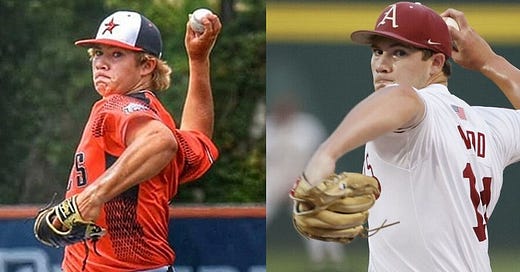




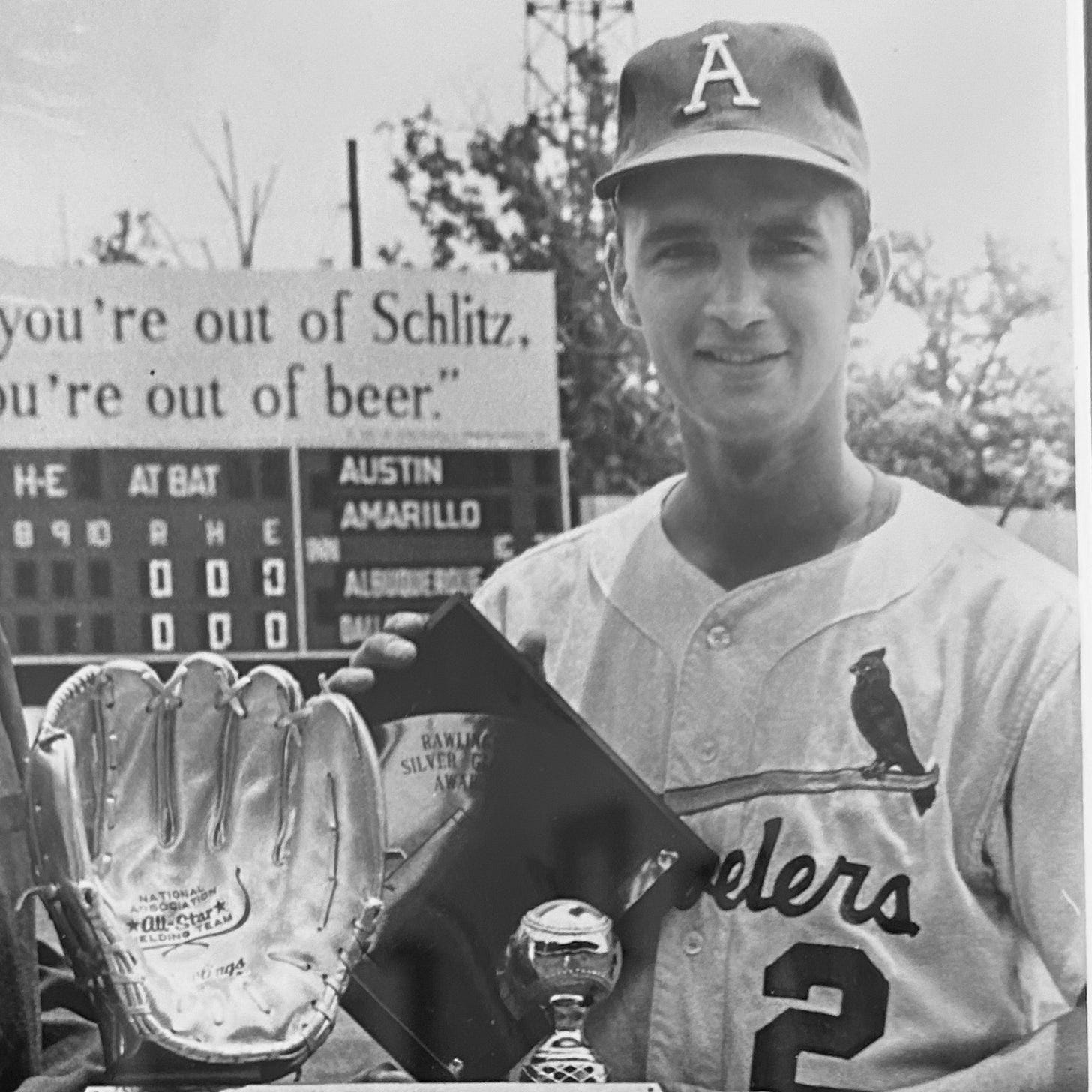
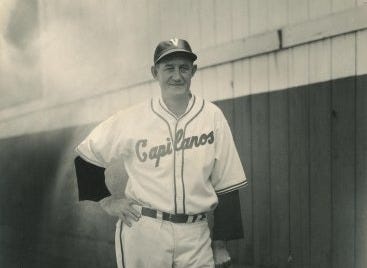

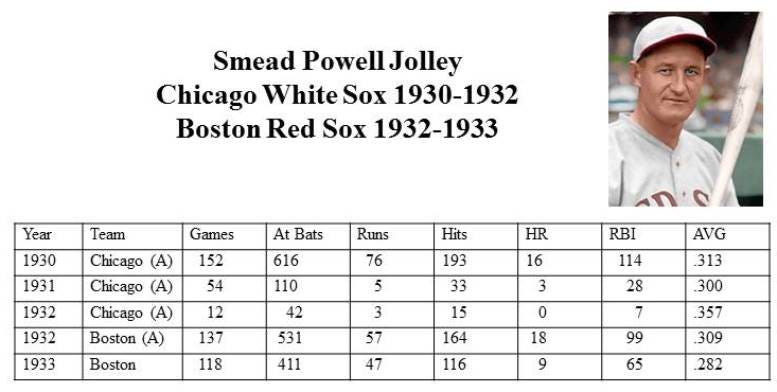
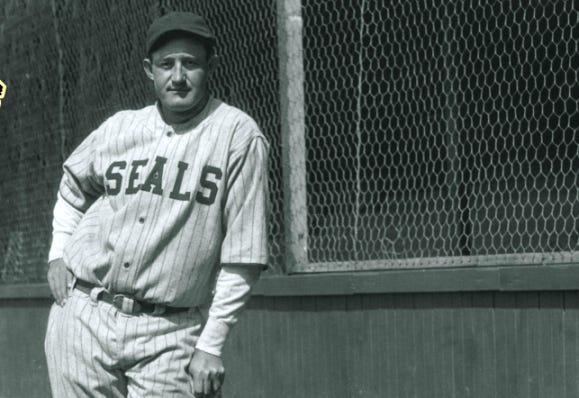
Best game I have ever seen thrown. Hands down.
Undoubtedly the greatest single game pitching performance in Razorbacks Baseball history. What a game!!! ⚾️🐗